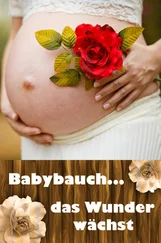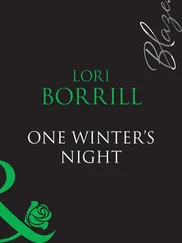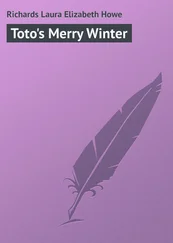Then she was on the other side of that door, closing it behind her again, and resolving with the quick snap of a rubber band on her wrist not only never to open it again, but never to think about it again:
She heard Annette Sanders, as clearly as if she were standing beside her at the Pokrovka Orphanage #2, saying, “It isn’t repression to acknowledge the horrors of this world and to let them go. It’s freedom .”
“IS THERE ANYTHING else?” Eric had asked Anya that spring day in Siberia, before they headed out the door of the Pokrovka Orphanage #2 to make their way home with their beautiful daughter. “We only need to know in order to know what she might need. In the future. You know. Was there any illness that you know of—in the family history?”
Both Eric and Holly had seen one of the nurses give Anya a sharp look when she replied, in her cryptic and strangely poetic English, “The sister, yes, born to die. Same sick as the mother.”
Anya had put her fist to her heart then and given it a quick, light punch, as if to restart it, or to demonstrate for Eric and Holly the location and function of a heart.
Holly had decided then that something had been lost in translation. She wanted to ask no more questions. When Eric started to request some clarification, Holly had willfully muddied the waters by asking Anya a question she couldn’t possibly answer or understand: “So, do you think there could have been a mitochondrial genetic disease?”
By then the other nurse’s sharp look had caught Anya’s blue eye—but it didn’t matter. Holly hadn’t asked it because she wanted an answer. Shortly after that, they said their good-byes, which were not nearly as dramatic as Holly had thought they would be.
Those nurses, who’d cared for Tatiana for the first twenty-two months of her life, bid her farewell with only a few terse nods and pats on the head—and then Eric and Holly left with Baby Tatty marching purposely, bravely, into the wan Siberian sunlight, as though to her doom, between them.
And as they walked out of the orphanage into the Siberian spring (such contrast to the winter landscape they’d left behind three months earlier), Holly again snapped a rubber band in her mind.
She would not let Anya be the wicked fairy godmother shoving her way into the back door of the christening. No one had the slightest idea what troubles had plagued Baby Tatty’s relations and ancestors, and never would. As with Holly’s own forebears, it would have been a list of horrors, quite possibly, but Baby Tatty smelled of verbena now, and her cheeks were rosy red, and each little finger was perfect—and her hair was so long! What twenty-two-month-old child had hair so long? And, although her eyes were not as large as they had seemed at Christmastime, they were dark and wide and Holly was now going to devote her entire life to filling those eyes with beautiful sights!
Eric, however, still wanted to worry.
“Jesus,” he said an hour later as they sat on a bench in the center of the nearly empty train station atrium. “What do you think Anya meant?”
The only other passengers waiting with them there were an old woman who seemed unable to sit down, pacing the station from one corner to the next as if she were looking unsuccessfully for an exit, and a young man in a blousy white shirt who stood and stared out the window at the tracks, devotedly chewing at his fingernails. “Did she mean that the mother died of some kind of heart defect?” Eric asked. “And that Tatiana had a sister ? That the sister also died of—”
Here Eric mimicked Anya’s fist tapping her chest, just above her heart.
Holly laughed, looking at the serious expression on her husband’s face, and his pantomime. “Well,” she said, “maybe they were stabbed to death, stabbed repeatedly in their hearts.” Morbidly, Holly turned the heart-tapping gesture into a stabbing one. She wanted to show Eric how absurd it would be to guess at Anya’s meaning. They would never know. Of course, it wasn’t really funny, but the absurdity made Eric laugh—the idea that mild-mannered Anya might have been miming a fatal stabbing with that gentle thumping of her own heart with her fist.
Then, both of them being so close to the edge of hysteria already—exhaustion, joy, relief—they both laughed far longer than the joke warranted. They were so filled with an ecstatic terror they had never before experienced or even imagined! Their daughter, their beautiful dark-haired daughter in her little white hard-soled shoes was nodding in and out of a gentle, fitful sleep between them on the bench in the train station, and they could not contain their laughter.
Incredible, it seemed, that the nurses had simply let Eric and Holly walk out of the Pokrovka Orphanage #2 with a fairy princess! Just a calm farewell, and the door opened, and now they had this little girl all to themselves. Forever! (Of course, that it had cost them thousands of dollars, piles of paperwork, and nearly two years of their lives wasn’t forgotten, but here it was! This day! Seeming sudden and miraculous and completely unearned!)
After they’d managed to stop laughing (trying to do so as quietly as they could so as not to awaken their restlessly dreaming daughter), Holly said, “Well, we’ll never know what she meant. So maybe her mother had a heart defect. It doesn’t mean Tatty does.” She looked down at Tatty then, the little blue-pink seashells of her fingernails, her long dark hair. “ Clearly Tatiana doesn’t. And so maybe Tatty had a sister who died. Well, so did I. Two of them.”
And after that, neither Tatiana’s genealogy nor her mitochondrial DNA, nor her mother or sister was ever mentioned again. They never speculated whether Tatiana might have inherited her love of horses from some Mongol ancestor or whether her lovely singing voice had been passed down from a gypsy grandmother. They never again wondered aloud whether there’d been a sister, whether the sister had died or might still be out there somewhere, alive. Neither of them speculated as to whether there might be manic depression tucked away in those genes, as there was in Holly’s, or heart disease, cancer, anything. Their daughter had come to them without a legacy. She was so beautiful and perfect she did not need one.
BUT, NOW, LOOKING into her daughter’s face—her huge eyes, her mouth full of raw meat and a little pink rivulet of animal blood trickling down her chin—Holly felt terribly afraid.
She was, herself, the one holding the enormous knife over her head, but she was afraid. Afraid of her daughter.
No one is born without a legacy.
How had she let herself believe otherwise all these years?
Of all people, Holly should have understood that genes are destiny. That the past resides inside you. That unless you hack it off yourself, perhaps, or have it surgically removed, it follows you to your dying day.
It was why she’d wept inconsolably one night years ago when Eric had said, beside Holly in bed, after having passed by the open door of the bathroom where Tatiana stood at the mirror brushing her glossy black hair: “My, God, her mother must have been a beauty.”
Holly had sat up fast, and found herself to be weeping before she even knew he’d wounded her.
“Oh sweetheart, oh sweetheart,” Eric had said. “What a stupid, stupid, stupid thing for me to say.”
He’d thought she was jealous! He thought that she’d heard in it the implication that she was not, herself, Tatiana’s mother. But that wasn’t it. He’d held her so tightly then that she thought she might break, but she let him, as she grieved there in his arms for the mother of Tatiana, for a woman she knew, in her heart, was dead.
Now Holly could see in her daughter’s enormous dark eyes not only herself but the Christmas tree behind her, and the picture window filled with blizzard beyond that, and even her daughter’s reflection in that window—and the girl in that reflection looked unfamiliar to her. She was not the same child they’d plucked, that first Christmas, out of her crib at the Pokrovka Orphanage #2.
Читать дальше
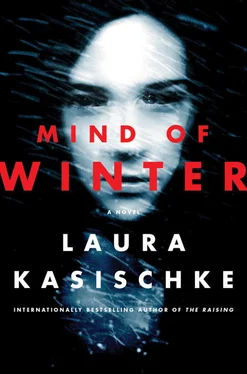

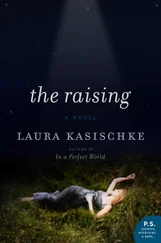
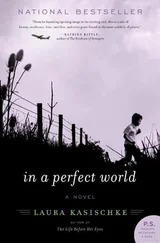

![Джон Харгрейв - Mind Hacking [How to Change Your Mind for Good in 21 Days]](/books/404192/dzhon-hargrejv-mind-hacking-how-to-change-your-min-thumb.webp)
